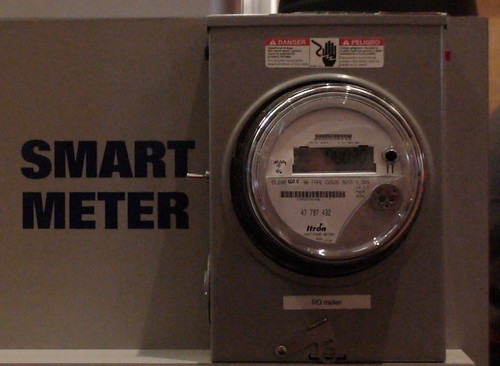
Photo credit \<
I was more than a little surprised to read a story printed in the UK’s Sunday Times yesterday claiming that a search on popular search engine Google:
generates about 7g of CO2 Boiling a kettle generates about 15g
Reading the article a little more revealed that the research has not been peer reviewed, so its veracity as a piece of scientific research has yet to be confirmed. However, given that the researcher in question had no access to Google’s carbon data, this has to be, at best, educated guesswork.
On top of that, the researcher responsible for the claim is CTO of Maxtility, a company whose aim is to:
solve important problems in industries ranging from education to energy
he can hardly be said to be an impartial researcher.
Google responded to the assertions this morning. In Google’s response they mention the energy-efficiency of their data centers which:
means the energy used per Google search is minimal. In fact, in the time it takes to do a Google search, your own personal computer will use more energy than Google uses to answer your query.
Google goes on to claim that
one Google search is equivalent to about 0.2 grams of CO2. The current EU standard for tailpipe emissions calls for 140 grams of CO2 per kilometer driven, but most cars don’t reach that level yet. Thus, the average car driven for one kilometer (0.6 miles for those of in the U.S.) produces as many greenhouse gases as a thousand Google searches.
Google then continues the piece by talking up its philanthropic arm Google.org (see GreenMonks’ podcast with Vint Cerf about Google.org) and the investments it has made through that vehicle in renewables, as well as its co-founding of the Climate-Saving Computers initiative.
As in most issues like this, I suspect the truth lies somewhere in the middle.
Google could do itself no end of good by having its carbon emissions third-party audited (under NDA if they are worried about competitive intelligence) while publications like the Times should know better than to run non-peer reviewed science stories from people who could be perceived to have their own agenda.
I won’t even go into on the childish Twitter bashing further down in the Times article – monumental ignorance trying to pass itself off as intelligent observation, sigh!
UPDATE – quite a bit of discussion about this happening – see Techmeme for more, also I see my old friend Jeremy Wagstaff came to a similar conclusion.

